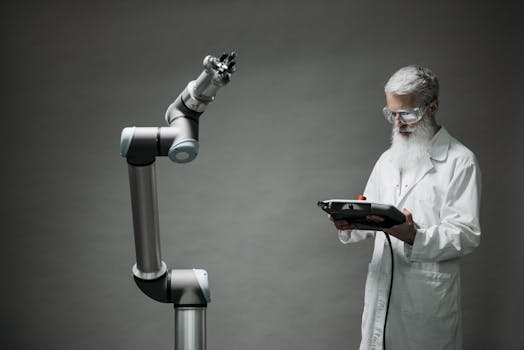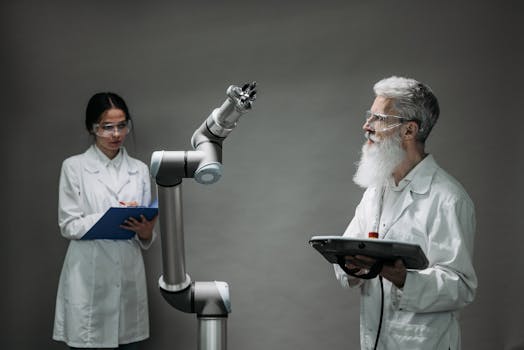
“
The Role of Artificial Intelligence in Scientific Research: Revolutionizing Discovery
Artificial intelligence (AI) has been increasingly integral to scientific research, transforming the way researchers collect, analyze, and interpret data. The application of AI in scientific research has led to significant breakthroughs, enabling scientists to tackle complex problems and make new discoveries at an unprecedented pace.
Introduction to Artificial Intelligence in Scientific Research

Artificial intelligence refers to the development of computer systems that can perform tasks that typically require human intelligence, such as learning, problem-solving, and decision-making. In the context of scientific research, AI can be used for a variety of purposes, including data analysis, pattern recognition, and predictive modeling.
The integration of AI in scientific research has been made possible by advancements in machine learning algorithms, natural language processing, and computer vision. These technologies enable researchers to analyze large datasets, identify complex patterns, and make predictions about future outcomes.
Applications of Artificial Intelligence in Scientific Research

AI has a wide range of applications in scientific research, including:
- Data Analysis: AI can be used to analyze large datasets, identifying patterns and trends that may not be apparent to human researchers.
- Predictive Modeling: AI can be used to develop predictive models that forecast future outcomes, enabling researchers to make informed decisions about their research.
- Automated Experimentation: AI can be used to automate experimental procedures, reducing the need for human intervention and increasing the speed of research.
- Scientific Discovery: AI can be used to identify new scientific concepts and hypotheses, enabling researchers to make groundbreaking discoveries.
Benefits of Artificial Intelligence in Scientific Research

The use of AI in scientific research has numerous benefits, including:
- Increased Efficiency: AI can automate routine tasks, freeing up researchers to focus on more complex and creative tasks.
- Improved Accuracy: AI can reduce errors and improve the accuracy of research findings.
- Enhanced Collaboration: AI can facilitate collaboration between researchers, enabling them to share data and expertise more easily.
- Accelerated Discovery: AI can accelerate the pace of scientific discovery, enabling researchers to make new breakthroughs and advancements.
Challenges and Limitations of Artificial Intelligence in Scientific Research

While AI has the potential to revolutionize scientific research, there are also challenges and limitations to its use, including:
- Data Quality: AI requires high-quality data to produce accurate results, and poor data quality can lead to biased or incorrect conclusions.
- Interpretability: AI models can be difficult to interpret, making it challenging for researchers to understand the underlying mechanisms and decision-making processes.
- Explainability: AI models can be difficult to explain, making it challenging for researchers to communicate their findings to others.
- Ethics: The use of AI in scientific research raises ethical concerns, such as the potential for bias and the need for transparency and accountability.





